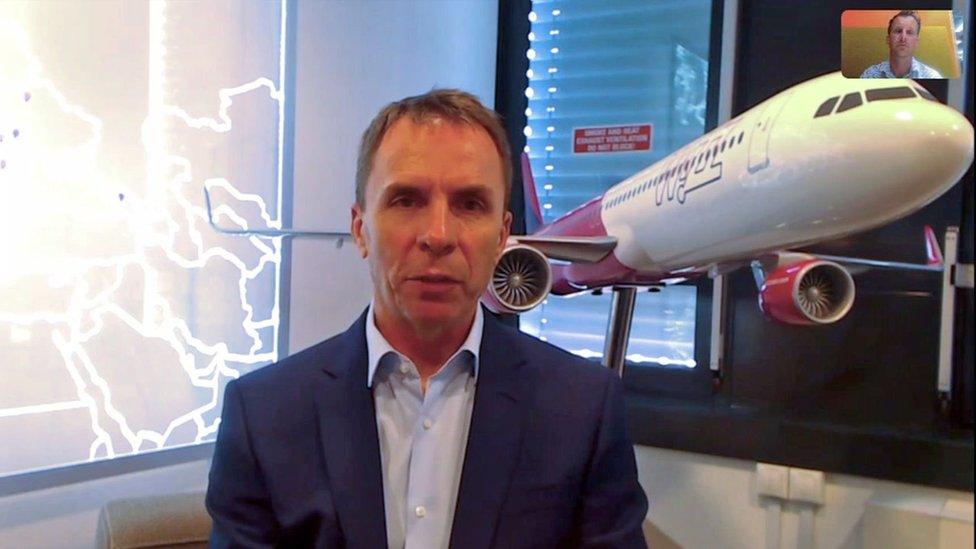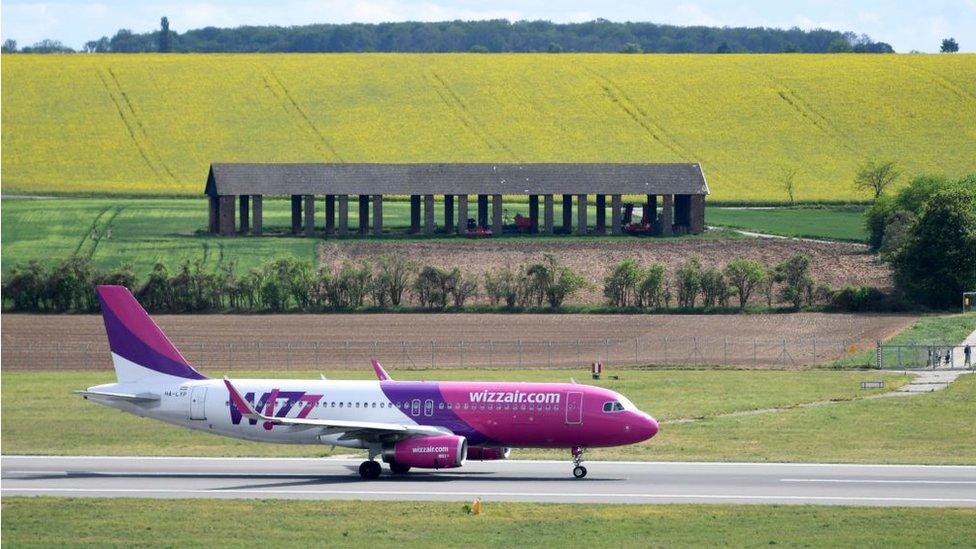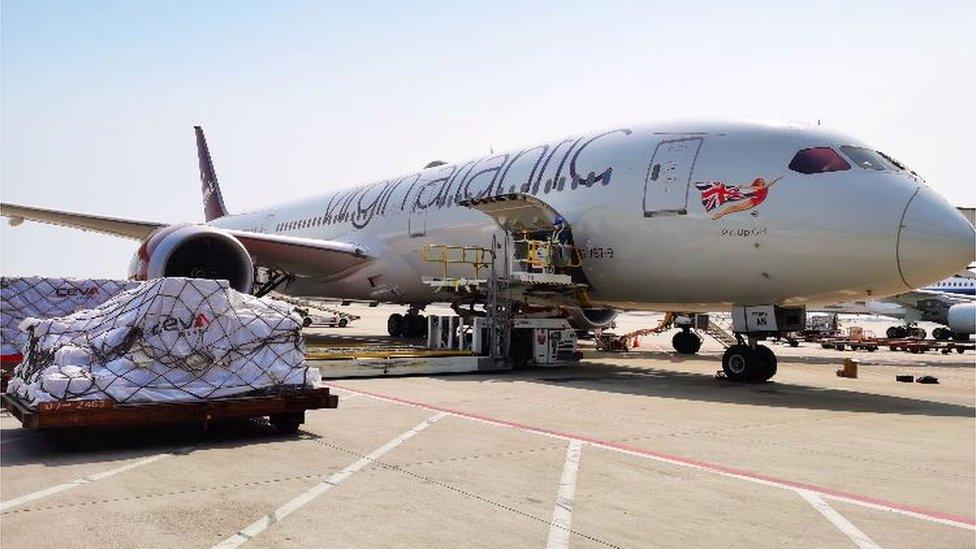Coronavirus: Young people are keen to fly again, says airline boss
- Published

Every passenger has to wear a face mask and is offered hand sanitiser.
Some seats are left empty, there is no food served or in-flight magazines and aircraft are deep-cleaned every night.
That's the new "hygiene regime" at Wizz Air.
Despite the fact that coronavirus travel restrictions remain in place around much of Europe the airline has already resumed some routes. There is a flight from Luton to Tenerife tomorrow afternoon.
The Hungarian budget airline's boss and founder József Váradi said they're selling around 75% of seats on flights at the moment, although he added that his aircraft are normally "around half full" because some people don't show up.
In an interview with the BBC, Mr Váradi suggested that some people are now flying to visit relatives, to their second homes or because "they just want to break out of the current lockdown".
But Wizz Air isn't quizzing passengers about their reasons for travel.
"One of the trends we are sensing is young people want to be back in the air quite quickly," he said.
However, the Hungarian entrepreneur expressed frustration that there is still no set of international common standards for measures which should be adopted on board aircraft and at airports to limit the spread of the virus.
"It's a bit of a zoo," he said, because "no two countries" out of the 45 nations where the airline operates are applying the same standards, or interpreting them in the same way.
He also called for "a better balance", globally, between restrictions to stop the spread of the virus and the need to restart business: "Countries and people cannot be locked down forever."
Rival airline Easyjet recently suggested that the middle seats on aircraft could be left empty so that social distancing is easier.
Can airlines survive?
Mr Váradi said that, in the longer-term, that "would kill an airline".
Airlines have been burning cash because their fleets are largely grounded. What's more, passenger numbers are, broadly-speaking, not expected to return to pre-pandemic levels for several years. Tens of thousands of cabin crew and pilots are being laid off.

A Wizz Air aeroplane taking off in Austria
Wizz Air is cutting 1,000 of 5,000 jobs across Europe. However this week the airline announced that it plans to launch new routes this summer from Luton to four Greek islands as well as Faro in the Algarve. In the autumn it also hopes to begin flights to Marrakech.
The airline boldly predicts it will be growing again by the end of this year, and it plans to increase its fleet of aircraft from 121 to 135 over the next 18 months.
After the pandemic, most people will be worse off and Mr Váradi predicts this new economic climate will strengthen the hand of budget airlines.
Perhaps unsurprisingly, he also predicts that "a large number" of airlines will go under: "If you are not a national carrier bailed out by the government or you are not a self-sufficient cash rich airline, then your days are over, the clock is ticking."
The limited leg room means passengers can be packed in on his modern fleet of more fuel-efficient aircraft. Mr Váradi claims his airline's carbon footprint is lower, per head, than that of competitors.
Any airline boss has to be optimistic, but any prediction that aircraft will fill-up this summer when travel restrictions lift has to be tempered.
Forecasting by airlines is normally reliable but these are the most unpredictable of times.

A SIMPLE GUIDE: How do I protect myself?
AVOIDING CONTACT: The rules on self-isolation and exercise
HOPE AND LOSS: Your coronavirus stories
LOOK-UP TOOL: Check cases in your area
TESTING: Can I get tested for coronavirus?

- Published17 April 2020

- Published8 April 2020